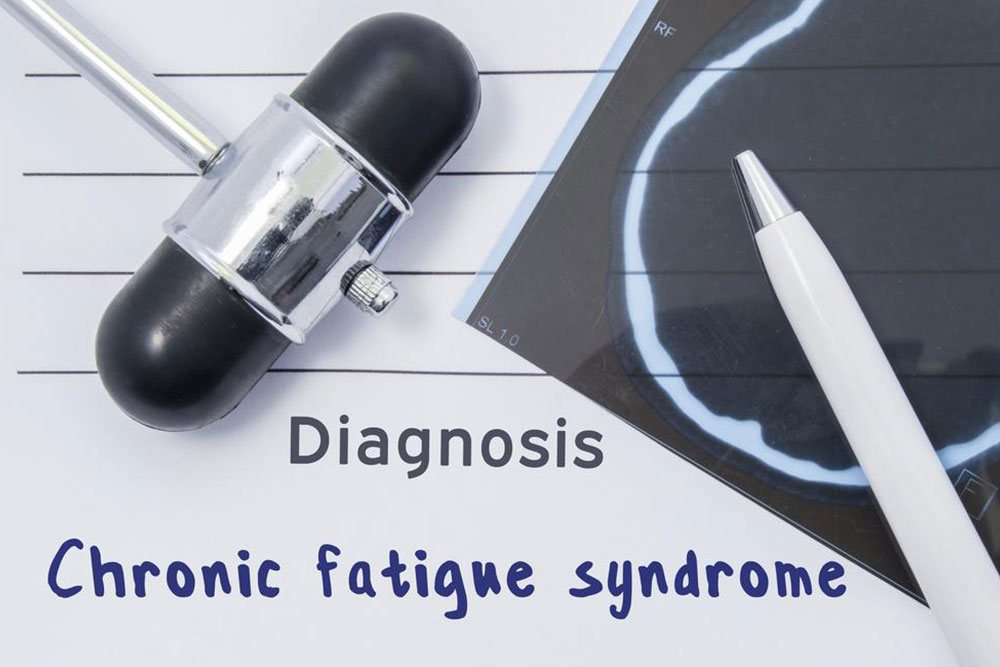Comprehensive Guide to Persistent Fatigue: Causes, Symptoms, and Effective Solutions
This comprehensive guide explores the numerous causes of persistent fatigue, including medical, psychological, and environmental factors. It provides detailed symptoms recognition, diagnostic approaches, and practical solutions such as lifestyle modifications, therapies, and self-care tips. Understanding and managing chronic fatigue can help individuals regain energy, improve their quality of life, and address underlying health issues effectively. Combining medical advice with lifestyle strategies is essential for overcoming ongoing tiredness.

Comprehensive Guide to Persistent Fatigue: Causes, Symptoms, and Effective Solutions
Experiencing persistent tiredness even after a full night's sleep can be concerning and disruptive to daily life. While occasional exhaustion is normal after hectic days, ongoing fatigue that doesn't improve with rest warrants deeper investigation. Persistent fatigue is often a symptom of underlying health issues that require attention and proper management. It can significantly impair quality of life, affecting work performance, relationships, and mental health. Understanding the underlying causes, recognizing symptoms, and exploring effective solutions are essential steps to regain energy and vitality.
Persistent fatigue is frequently associated with a condition known as chronic fatigue syndrome or Systemic Exertion Intolerance Disease (SEID). This complex disorder is characterized by an unrelenting sense of exhaustion that isn’t relieved by rest. Despite its prevalence, diagnosing chronic fatigue can be challenging because its symptoms overlap with numerous other health conditions. As a result, many individuals may suffer for years without a clear diagnosis or effective treatment plan. The key to managing persistent fatigue lies in understanding its diverse causes, recognizing early warning signs, and adopting comprehensive lifestyle and medical interventions.
Common Causes of Persistent Fatigue
There are multiple factors that can contribute to ongoing fatigue, often interacting in complex ways. Some of the most common causes include psychological stress, physical health issues, environmental influences, and lifestyle choices. Here, we explore these in detail to help you identify potential contributors to your fatigue.
Psychological and Emotional Factors
Stress, anxiety, depression, and other mental health conditions are significant contributors to fatigue. Chronic psychological stress can deplete the body's energy reserves, impair sleep quality, and disrupt hormonal balance. Depression, in particular, often presents with symptoms of fatigue, loss of interest, and changes in sleep and appetite. Addressing mental health through therapy, mindfulness practices, and professional support can significantly alleviate fatigue related to emotional factors.
Physical and Medical Causes
Several medical conditions are linked to persistent fatigue. These include:
Infections: Persistent or recurring infections such as mononucleosis, Lyme disease, and COVID-19 can drain energy and weaken the immune system.
Hormonal Imbalances: Thyroid dysfunctions, adrenal fatigue, and diabetes can cause significant tiredness.
Immune Disorders: Conditions like lupus or multiple sclerosis can contribute to ongoing fatigue.
Sleep Disorders: Sleep apnea, restless leg syndrome, and insomnia prevent restful sleep, leading to daytime exhaustion.
Nutritional Deficiencies: Deficiencies in iron, vitamin D, B12, and other nutrients impair energy production.
Genetics and Environmental Factors
Genetic predispositions may influence how individuals respond to stress, infection, or hormonal changes, affecting their susceptibility to fatigue. Environmental factors such as exposure to toxins, pollutants, and allergens can also impair immune function and overall energy levels. Living in areas with high pollution or poor air quality may exacerbate fatigue symptoms.
Recognizing Symptoms of Chronic Fatigue
Chronic fatigue manifests through various symptoms beyond just feeling tired. Recognizing these signs early can prompt timely medical consultation and effective management:
Prolonged tiredness that persists for more than six months
Sleep disturbances, including difficulty falling asleep or waking up feeling unrefreshed
Headaches and body aches
Difficulty concentrating, memory problems, and mental fog
Sore throat and swollen lymph nodes
Joint pain and muscle weakness
Feeling easily overwhelmed or unable to recover stamina after exertion
Diagnosis and Medical Evaluation
Diagnosing persistent fatigue involves ruling out other medical conditions that can cause similar symptoms. Healthcare professionals typically conduct comprehensive assessments including:
Blood tests to evaluate thyroid function, hormonal levels, immune markers, and nutritional deficiencies
Imaging studies such as MRI or CT scans if neurological or structural issues are suspected
Sleep studies to identify disorders like sleep apnea
Psychological evaluations to detect underlying mental health concerns
Since no single test conclusively identifies chronic fatigue syndrome, doctors rely on clinical judgment and exclusion of other causes to arrive at a diagnosis.
Effective Management Strategies for Persistent Fatigue
Addressing persistent fatigue requires a multi-faceted approach that combines medical treatment, lifestyle adjustments, and holistic practices. Here are some strategies that can help improve energy levels and overall well-being:
Medical and Pharmacological Interventions
Treat underlying conditions such as thyroid disorders, infections, or sleep disturbances
Medication for pain relief or sleep regulation, as prescribed by healthcare providers
Supplements for deficiencies, such as iron, vitamin D, or B12, under medical supervision
Lifestyle Modifications
Optimizing Sleep: Establish regular sleep routines, create a restful environment, and avoid screens before bedtime.
Gradual Exercise: Engage in light physical activity like walking or yoga to boost energy without overexerting.
Balanced Diet: Prioritize nutrient-dense foods, stay hydrated, and avoid sugar and processed foods.
Stress Management: Practice relaxation techniques such as meditation, deep breathing, or mindfulness.
Avoid Overexertion: Pace activities and listen to your body's signals to prevent burnout.
Holistic and Complementary Therapies
Many individuals find relief through acupuncture, massage therapy, and meditation practices. These modalities can reduce stress, promote relaxation, and improve sleep quality. Cognitive-behavioral therapy (CBT) may also help address emotional and psychological factors contributing to fatigue.
Home Remedies and Self-Care Tips
In addition to medical treatment, several home-based strategies can help mitigate fatigue symptoms:
Maintain a consistent sleep schedule
Engage in light physical activity to stimulate circulation and energy
Practice stress reduction techniques regularly
Eat a balanced diet rich in fruits, vegetables, lean proteins, and whole grains
Avoid caffeine and alcohol close to bedtime
Stay well-hydrated throughout the day
The Importance of Medical Consultation
If persistent fatigue impacts your daily life, seeking professional medical advice is crucial. Proper diagnosis ensures that underlying medical conditions are identified and treated appropriately, improving your chances of recovery. Never ignore ongoing fatigue, as early intervention can prevent complications and enhance your quality of life.
Conclusion: Regaining Vitality
Persistent fatigue can be a complex and multifaceted challenge, but with a comprehensive understanding of its causes and effective management strategies, individuals can find relief. Combining medical interventions with lifestyle adjustments, stress management, and holistic practices can significantly improve energy levels and overall health. Remember, personalized care under the guidance of healthcare professionals is key to overcoming chronic fatigue and restoring your vitality.





